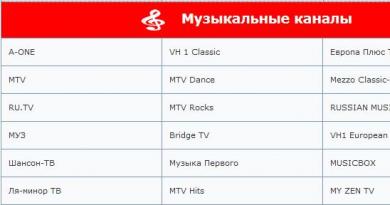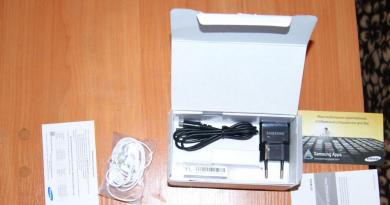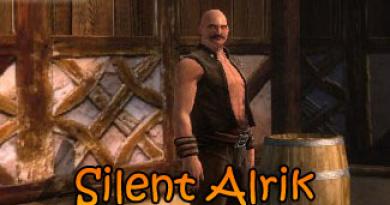Automatic detection of the forum engine. Help: View topic Cover profile powered by smf
Well, let's start giving little tips on optimizing and promoting sites (forums) on phpBB. In this case, we will perform a small hack that will help get rid of an external link like " Powered by phpBB ©...". In this publication we will look at 2 ways in which you can do this - a technique for phpBB 3.x.x.
Removing an external link Powered by phpBB © 2000, 2002, 2005, 2007 phpBB Group and Russian phpBB support
The first way to remove an external link that says Powered by phpBB © 2000, 2002, 2005, 2007 phpBB Group. And so, the easiest way is to delete using the admin panel. We go to the administrative panel, go to the “Styles” menu item, on the left we see the panel where the block in the menu is located, we are interested in the “Style Components” block, and in it “Templates”. According to the standard, in the proposed window we will see the following: prosilver and subsilver2, although there could be others if you installed them. In general, that's not the point. From the proposed set, select the default one. Click on the "edit" button next to the template. Next, a window appears asking you to “Select a template file.” Next, select “Template file” - “overall_footer.html”. The HTML editor appears below. We find the following code: " Powered by phpBB 2000, 2002, 2005, 2007 phpBB Group"and just delete it, although you can set your own link and caption."
(TRANSLATION_INFO)
" (which is located below, can also be deleted) - this code is responsible for localization, for example an external link with the inscription "Russian phpBB support".
The second way to remove an external link that says Powered by phpBB © 2000, 2002, 2005, 2007 phpBB Group. This method is similar, but we connect to the site via Pratacol ftp. Go to the following path styles/template_name/template/overall_footer.html. And we edit the same code that we edited above. If you change the code, do not forget to set the UTF encoding - this way, “crackers” (squares and other incomprehensible symbols) may appear in place of the anchors.
Let's start right away with the main script code:
#!/usr/bin/perl
# which-forum.pl script
# (c) 2010 Alexandr A Alexeev, http://site/
use strict;
# commented lines - for rigor
# if the task is to collect engine statistics, leave it as is
# if you make a list of forums - uncomment
my $data ;
$data .= $_while (<>
)
;
# check how much was Powered by phpBB without a link in the footer You will find this and other scripts mentioned in the post in this archive. Script which-forum.pl examines the HTML page code to see if it contains signatures of the forum engine. We used a similar technique when defining WordPress and Joomla, but there are a couple of differences. Firstly, the script itself does not load the page code, but reads it from stdin or a file passed as an argument. This allows you to download the page once, for example, using wget, and then run it through several analyzers, if we have more than one. Secondly, in this script the presence of a signature is 100% a sign of the engine. Last time, the presence of a signature only added weight to the corresponding engine and the engine with the greatest weight “won”. I decided that in this case, such an approach would only unnecessarily complicate the code. To test the script, I did some research. I compiled a list of several thousand forums and ran each of them through my script, thereby determining the percentage of program responses and the popularity of various engines. To get the list of forums, I used my Google parser. Queries like this were sent to the search engine site:forum.*.ru and so on. You will find the complete query generator code in the file gen-forumsearch-urls.pl. In addition to zone.ru, .su .ua .kz and .by were also used. Last time, it was difficult to conduct such a study, since WordPress and Joomla sites do not have such signatures in the URL. Catalogs like cmsmagazine.ru/catalogue/ do not provide a sufficient sample size. What is 600 Drupal sites? I must admit, the results of the experiment disappointed me. Of the 12,590 sites studied, the engine was successfully identified on only 7,083, that is, only in 56% of cases. Maybe I didn't take into account some engine? Was it really true that half of the forums had Bitrix installed? Or should I have spent more time searching for signatures? In general, additional research is required here. Among the 56% of successfully identified engines, the most popular, as expected, were IPB (31%), phpBB (26.6%) and vBulletin (26.5%) They are followed with a large lag by SMF (5.8%) and DLEForum (5.3%). My favorite punBB was only in 6th place (1.64%). I wouldn’t recommend putting much faith in these numbers (they say that every third forum on the RuNet runs on IPB), but certain conclusions can, of course, be drawn. For example, if you intend to make a site on a forum engine and plan to modify the forum, say, pay users $0.01 for each message with automatic withdrawal of funds once a week, then you should choose one of the three most popular engines. The more popular the forum, the greater the chances of finding a programmer who is well versed in it. If no significant changes are expected in the engine, then it may make sense to choose a less popular engine, for example SMF or punBB. This will reduce the number of hacker attacks on your forum and the amount of spam automatically sent on it. Scripts for searching/identifying forums can also find many practical applications. The first thing that came to my mind was to sort the identified forums by TIC and post on the first hundred posts with links to one of my sites. However, hundreds of forum dofollow links did not affect the TCI in any way (2 updates have passed), so it is better not to waste time here, unless you are not interested in transitions. It is clear that the mentioned use of scripts is far from the only one. I think you can easily figure out how else you can use them. Everyone knows that I simply cannot live without Joomla, but, in my opinion, there is no good forum for components. That's why I work with forum engines. One of the new ones that I just recently started using is Let's start a new SMF category with hopefully useful stuff. We start small, and as beginners it’s very useful. Let me make a reservation right away that I only work with smf 2 and this article will relate specifically to this version of the free forum engine. And so, regular readers know how much I don’t like to put “10” external links to the official websites of engines, including forum ones. That is why, first of all, we remove the copyright and as many as 4, attention 4 external links of the form " SMF 2.0.2 | Simple Machines | SMF © 2011 | XHTML"! To do this, connect to the site via FTP forum/Themes/ name of your theme/ and edit the file index.template.php. Naturally, at the very bottom there is a code (about line 330) that displays external links that we don’t like so much. Therefore we delete: " By selecting a specific topic to view, users are taken to a page with a list of messages in that topic. Each individual message usually looks like this: Typically, along the top and bottom of each page, a small menu will appear containing (depending on your forum settings) the following buttons: Typically, the list of messages in a topic is displayed in vertical order: old messages at the top, new ones at the bottom. But each user can set a different, horizontal order in his profile. Then new messages will be placed at the top. Each message in the list is divided into two sections. The left section contains brief information about the author of the message, and the right section contains the message itself. While these are the most common message elements when viewing threads, users can hide some of them by editing their profiles.
print "phpbb \n"
if ($data =~ /
# $data =~ /viewforum\.php\?[^""]*f=\d+/i or
$data =~ /phpBB\-SEO/i or
$data =~ /)
;
print "ipb \n"
if ($data =~ /
$data =~ /
$data =~ /
$data =~ /index\.php\?[^""]*showforum=\d+/i)
;
print "vbulletin \n"
if ($data =~ /Powered by:?[^<]+vBulletin[^<]+(?:Version)?/i
or
$data =~ /)
;
print "smf \n"
if ($data =~ /
$data =~ /index\.php\?[^""]*board=\d+\.0/i)
;
print "punbb \n"
if ($data =~ /
# $data =~ /viewforum\.php\?[^""]*id=\d+/i);
print "fluxbb \n"
# if($data =~ /viewtopic\.php\?id=\d+/i or
if ( $data =~ /
print "exbb \n"
if ($data =~ /
# $data =~ /forums\.php\?[^""]*forum=\d+/i);
print "yabb \n"
if ($data =~ /
$data =~ /YaBB\.pl\?[^""]*num=\d+/i ) ;
print "dleforum \n"
if ($data =~ /\(Powered By DLE Forum\)<\/title>/i or
$data =~ /
print "ikonboard \n"
if ($data =~ /
$data =~ /\n"
if ($data =~ /\n"
# if($data =~ /forums\.php\?fid=\d+/i or
# $data =~ /topic\.php\?fid=\d+/i or
if ($data =~ /
print "stokesit \n"
# if($data =~ /forum\.php\?f=\d+/i or
if ($data =~ /
print "podium \n"
# if($data =~ /topic\.php\?t=\d+/i or
if ($data =~ /
print "usebb \n"
# if($data =~ /forum\.php\?id=\d+/i or
if ($data =~ /
print "wrforum \n"
# if($data =~ /index\.php\?fid=\d+/i or
if ($data =~ /
print "yetanotherforumnet \n"
if ($data =~ /Yet Another Forum\.net/i or
$data =~ /default\.aspx\?g=posts&t=\d+/i)
;
site:talk.*.ru
site:board.*.ru
site:smf.*.ru
site:phpbb.*.ru
....First steps in search engine optimization Simple Machines Forum: removing copyright and external links


